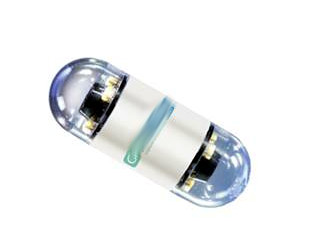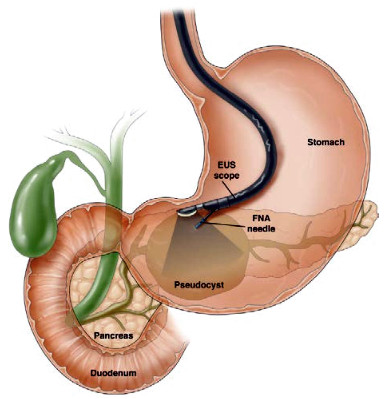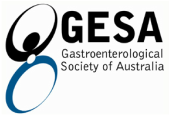Dr Raghu Gill
Dr Gill is an Interventional Endoscopist with extensive clinical experience in the endoscopic diagnosis and management of diseases of the gastrointestinal tract. His clinical practice is enhanced by his interest in evidence based treatment of disorders of the gastrointestinal tract, the bile duct, the pancreas and the liver. He has published widely and participated in research covering a wide spectrum of gastroenterology and liver related diseases and their outcomes.
Dr Gill undertook his physicians training at the Royal North Shore (RNS) Hospital and Gastroenterology fellowship at the Royal Prince Alfred (RPA) Hospital. He went on to complete an Advanced Fellowship in ERCP (Endoscopic Retrograde Cholangio Pancreatography), EUS (Endoscopic Ultrasound) and Interventional Endoscopy at the premier Duke University Hospital in North Carolina (U.S.A) which is ranked among the best in the country; he was also a Faculty member at Duke University Hospital until his return to Sydney.
Dr Gill is a member of the Gastroenterological Society of Australia (GESA); and a fellow of the Royal Australian College of Physicians (FRACP).
Special Interests / Areas of Research:
- Management of Inflammatory Bowel Disease, Irritable Bowel Syndrome, Iron Deficiency Anaemia, Reflux, and Coeliac disease.
- Endoscopic screening of: Barrett’s oesophagus, pancreatic cysts, pancreatic cancer screening, bowel cancer screening.
- Endoscopic diagnosis, staging and treatment for gastrointestinal cancer including: oesophageal cancer, gastric (stomach) cancer, bile duct cancer (cholangiocarcinoma), pancreatic cancer and bowel cancer.
- Interventional endoscopy including advanced imaging, endoscopic ultrasound (EUS), ERCP, radiofrequency ablation (RFA), endoscopic mucosal resection (EMR).
Admissions and Procedures: Norwest Private Hospital, Lakeview Private Hospital, Healthwoods Endopscopy Centre
Languages Spoken: Dr Gill is fluent in English, Hindi, Punjabi, and Urdu
Dr Rajni Tiwari
Dr Rajni Tiwari is a Gastroenterologist and Hepatologist with a special interest in the management of Liver diseases. Dr Tiwari provides an individually tailored consultation to every patient with evidence based care in all areas of Gastroenterology and Hepatology.
Dr Tiwari completed her MBBS from India with four Gold Medals. She then went on to finish her post graduate training from U.K. She has done her MRCP U.K. (Membership of Royal College of Physicians) and Gastroenterology training from Nottingham University Hospital U.K. with SCE (Speciality Certificate Exam) Gastroenterology.
After completing her training in 2017, she moved to Australia to work as a Staff specialist at Westmead Hospital.
Dr Tiwari has been part of numerous studies and publications. Currently, she is a sub-investigator on number of studies for Metabolic Liver Disease, Hepatitis and Liver cancer. She is also a keen mentor for trainee doctors and involved in teaching junior doctors and medical students.
Dr Tiwari is a member of the Royal college of Physicians of Australia (RACP) and Conjoint committee for Endoscopy certification (GESA).
Special Interests / Areas of Research:
- Management of Hepatitis, Fatty Liver disease, Advanced Liver Cirrhosis, Liver cancer.
- Upper GI Disorders
- Colorectal Cancer Screening
- Inflammatory Bowel Disease
- Gastroscopy, Colonoscopy with/without polypectomy, Management of acute GI Bleeding of any cause, Dilatation of strictures, Placement of PEG tubes and Capsule Endoscopy (Pill Cam).
Admissions and Procedures: Westmead Hospital, Norwest Private Hospital
Languages Spoken: Dr Tiwari is fluent in English, Hindi, and Urdu.
Dr Ajay Kumar
Dr. Ajay Kumar is a distinguished Consultant Physician and Geriatrician with an esteemed Fellowship from the Royal Australasian College of Physicians (FRACP). His extensive medical journey includes completing his Basic Physician Training at the renowned Royal North Shore Hospital, followed by Advanced training at Gosford, Woy Woy, and Wyong Hospitals.
A proud member of the Australian and New Zealand Society for Geriatric Medicine, Dr. Kumar possesses a wealth of expertise in managing intricate medical conditions prevalent in the elderly. His specialized skills encompass comprehensive Geriatric assessments, Polypharmacy management, diagnosis and treatment of dementia, osteoporosis, frailty, and fall prevention. Additionally, he addresses the multifaceted social and emotional challenges faced by older adults and extends his care to patients in residential aged care facilities.
Dr. Kumar is renowned for his compassionate approach towards patient care, always going the extra mile to ensure comfort and well-being. As a passionate geriatric specialist, he is dedicated to empowering the communities he serves, emphasizing education and awareness about geriatric health.
Currently, Dr. Kumar holds the position of Visiting Medical Officer (VMO) at Norwest Private Hospital, and Mt Wilga Private Hospitals. Furthermore, he has Private Rooms at Bella Vista, and Berkeley Vale Private Hospitals.
With his blend of expertise, empathy, and commitment to community empowerment, Dr. Ajay Kumar stands as a beacon of excellence in geriatric care, making a profound difference in the lives of his patients and the community at large.
Admissions and Procedures: Norwest Private Hospital, and Mt Wilga Private Hospitals
Languages Spoken: Dr Kumar is fluent in English, Hindi, Punjabi, and Urdu.
Geeta Bhandari
Geeta is an Accredited Practising Dietitian with over 30 years of experience spanning clinical dietetics, private practice, and community health—18 of those years in Australia. Her clinical focus includes chronic disease prevention and management, with expertise in gastrointestinal health. She employs a holistic, evidence-based approach that integrates nutritional science with lifestyle interventions.
Geeta holds advanced certifications from Monash University in the Low FODMAP Diet (2020) and Disordered Eating (2024), reflecting her deep commitment to gastrointestinal health and its connection to both mental and physical wellbeing.
Geeta completed her Master’s degree in Nutrition and Dietetics from Punjab University Chandigarh, India, finishing first in her course. She completed her internship and training from PGIMER Chandigarh. She served as Chief Dietitian at a leading multi-speciality hospital in Chandigarh for 15 years and contributed editorially to the Indian Dietetic Association’s newsletter.
After relocating to Australia in 2005, she continued her impact by leading wellness programs with the NSW council and working in private practice within Medical and Allied Health Centres. She has been invited to share her expertise on wellbeing on radio talk shows and has contributed nutrition and wellness columns to magazines.
Geeta is known for her empathetic and culturally sensitive approach. She blends scientific insight with practical strategies tailored to each client’s lifestyle, background, and goals. She thrives on solving complex cases and empowering individuals to take charge of their health.
Special Interests / Areas of Expertise:
- Gastrointestinal Health and Disorders
- Disordered Eating and Eating Disorders
- Low FODMAP Diet and Digestive Resilience
- Diabetes and Cardiovascular Disease
- Obesity and Weight Management
- Preventive Nutrition and Lifestyle Therapy
Languages Spoken: Geeta is fluent in English, Hindi, and Punjabi.
























